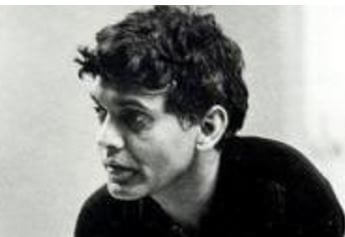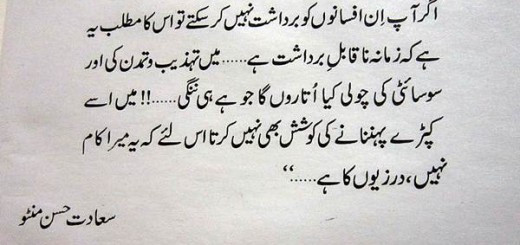What’s in a Name? By Eqbal Ahmed
To my knowledge, no other institution of higher learning in the United States offers courses, or even a single course, on imperialism or the Third World as part of its core curriculum. Yet thi topic can serve as a catchment from which one can draw streams of knowledge about our past and increasingly shared future, about culture no less than history, literature as well as politics, economics and also psychology, and above all about the varieties of power and their powerful, pervasive impact on the human condition. It is a subject which, given an informed and imaginative structuring, would offer an essential sequel to what passes in most universities as Introduction to Western Civilization. For, a course on the Third World will of necessity be a comprehensive study of Western civilization from the 16th century onwards. The Third World consists of continents and peoples who are assigned names. The term The Third World is itself an assignment, so to speak, from the First World. At the end of World War II the structure of world power had changed. The war had catapulted the United States as a superpower, established the Soviet Union as a potential rival, and brought to near ruination the great colonial powers of Europe – Great Britain. France, Holland, and Belgium – weakening their ability to hold on to the colonics where people were demanding self-determination.
After the independence of India and Pakistan in 1947, other countries of Asia and Africa decolonised rapidly though in some instances, as those of Vietnam and Algeria, after savage and protracted warfare. The world powers had to redefine their relations with these postcolonial countries. The cold war added some urgency to this task as each of the two power blocs sought to gain influence in the newly independent states.
This new reality demanded new nomenclature. It was not good politics any more to describe Africa as the Dark Continent, or Asia as an undifferentiated Orient. But old outlooks die hard. So English and American scholars came up with the term Backward Nations. The backward reacted often loudly and occasionally with wit razor sharp. “Mr. Gandhi. Mr. Gandhi “, asked the English journalist, “what is your view of Western civilization?” Mahatma Gandhi, whom Winston Churchill had in 1945 called a “half-naked Indian fakir”, replied with a saintly smile “Ah. it’s a very good idea”.
Backward nations were soon replaced with non-western nations but this did not flew as Latin Americans laid claim to be Western and did not want to be thrown in with Asians and Africans. Hence came under-developed countries, a term that responded to the United States recently articulated policy of promoting development first via the Point Four Program then through the Agency of International Development (AID).
Underdeveloped was in currency for a while. But it too was found lacking proper PR content. Thereupon a number of American and British academics attempted to link empirical realities to diplomatic convenience. I had offered various appellations – New Nations. Emerging Nations. Transitional Societies and from a famous Latinist, Expectant Nations. Never the one to be left behind in the race of academic functionaries. Professor Samuel P. Huntington of Harvard produced a tone that introduced us to changing societies, as in Political Order in Changing Societies, which had a life as short though not quite as meteoric as his latest invention – The Clash of Civilizations. More enduring was the Princeton-based modernization theorists Developing Countries. This one was a PR coup of a high order. It proved quite pleasing to the rulers of the countries so named as it placed their ill-governed slates squarek on the path of progress. Two problems intervened: first, the sixties’ youthful radical scholars insisted that most of these “developing countries” were in fact underdeveloping in spite, rather because of generous US aid.
Additionally, the french whose interests in their overseas colonies are not to be ignored, found ‘les pays en vois de development’ far too great an encumbrance upon their proud linguistic heritage that’s where Professor Pierre Jalee, a frenchman of Marxist persuasion, came in joining the past with the present, and dividing up one world into three according to their links with the capitalist market. The First World dominated the market by virtue of its advanced economies, power, and colonial history. The Second World consisted of countries which had separated from the market by revolutionary means. The Third World, consisting mostly of the First World’s former colonial possessions, was under-developed, produced raw materials arid cheap labour, and remained dependent on the first World powers which controlled the market to the detriment, he so argued, of their dependencies.
The great virtue of this paradigm was that it reflected historical and empirical realities, a fact welcomed by Third World liberals and radicals alike. It was also a complex enough formulation for the idea to be ignored and the terminology to be acceptable to First World policy makers. Thus, the Third World became the most enduring of the names given to the ensemble of dependent countries while the central argument of Pierre Jalee’s Pillage de Tiers Monde was all but forgotten.
Four observations are in order:
One. the cold war’s end and virtual dissolution of the ‘“socialist bloc” has left a big hold in Pierre Jalee’s paradigm. For all practical purposes the second world has disappeared. All its constituent countries have entered the ‘market’, mostly from positions of such weakness that they resemble the Third World countries. Only a few of these primarily the expected members of the enlarged NATO alliance – are to be admitted into the exclusive First World club. The world is truly bipolar, now as it is divided between the two categories of rich and poor countries. The latter are divided among themselves, as the poor often are. between the abject and the hopeful. It is safe to predict then that the rich shall fear and demonise – as they have done through the ages -those among the poor who appear defiant, or show signs of seeking autonomy and an independent will. The international environment has natural!) begun to ring with phrases like “the rogue states.” “clash of civilisations,’’ and the “Chinese threat”. We ought to keep a critical stance toward these, lest we fall prey to the psychosis of yet another era of ideological warfare.
Second, who gives a name to whom is a question of power, be it benevolent or harsh. Parents give names to children, owners to their pets, and lords to their estates. Masters gave names to their slaves so authoritatively that their original African names were forever forgotten. Power, we must never forget, is more or less unequally distributed in nearly all spheres of life -internationally, nationally, and often in the family the greater the inequality – whether racial or sexual, between classes or nations.-the higher it stands as an obstacle to peace and human deration. Viewed thus, the Third World is a metaphor for unequal exchange. To reduce this inequality, and eliminate it where possible, is an enlightened, educated project. The ‘expectation’ then is that the educated person would discern its patterns, within and without, and work at obviating it. Alter all. as Karl Marx put it the function of knowledge should be to comprehend reality in order to change it.
I heard this brief narrative of how the term came about alerts us to problems of the relationship between knowledge and power. This age-old question has far greater urgency today because the nature of power has changed and is changing greatly, and intellectuals play an exponentially larger role in society. Hence the pressure on. and temptations for. intellectuals to conform to the exegesis of power have vastly augmented. The problem is compounded by the fact that during the last two centuries the tradition has deepened of the intellectuals’ collaboration with the state and corporation. In the ancient and mediaeval ages some intellectuals and artists received the patronage of rulers and their courts.
In so far as association with the added lustre to regimes and often rendered them memorable, they served legitimizing and historical purposes. But only rarely did they play the role of intellectual functionaries, putting their knowledge in the service of power in the operative, strategic sense of the word. Only in the modern, capitalist age of Western expansion did mankind experience large-scale and strategically significant collaboration between the intellectuals and mostly imperial states.
A large body of recent scholarship has shown the ways in which such an alliance distorted both the functioning of the state and society’s perspectives. During the two world wars, which were technologically modern and total wars involving European societies, this alliance, gained ideological sanction. During the cold war, it was so institutionalised that nearly all the big names in my profession became identified with the United States government, a fact that eventually alienated me from the university environment. Far too many academics have had a hand in overthrowing elected governments, ordering secret bombings, the killings of millions of innocent people, and sanctioning the torture of prisoners. Far too many journalists abandoned the fundamental tenets of independent of the public, the truth, or the law. But often there is.
As educated persons we all have to choose we want to be like Henry Kissinger or Noam Chomsky, Father Daniel Berrigar or Cardinal Cook. I.F. Stone or Abe Rosentha. The choice will confront you, perhaps all your life, and w ill always be yours to make. I should merely underline that higher education is intended to serve two primary purposes: it imparts skills’ therefore, enhances one’s opportunities for social mobility and economic well-being; and it is expected to refine one’s mind and elevate one’s morals. Since all competent education provide the skills. I tend to associate good education with latter.
Four, while inequalities of class and sex had existed throughout history, its patterns became more complex and global in the modern than in any other era in human history. Never before had the world been so divided by sharp differentiated modes of production which range from the primitively manual to the mechanical automated.
Never had there emerged such wide gaps in the knowledge that people possessed across continents. And there had never existed so great an inequality of exchange, therefore, of the human condition. Paradoxically, this development occurred in the age of enlightenment, rationalism, and democracy, of unparalleled progress in science, technology, and the discovery of consciousness and the human mind.
The paradox inevitably enters into our lives, as it did in the lives of heroic, historic figures. The sixties’ radicals used to recall bitterly that Thomas Jefferson, undoubtedly one of the greatest liberal thinkers of the modern age, was a slaveowner. But we often failed to reflect on the culture and economy that shaped men and women of Jefferson’s era in such a fashion that they could practice slavery and also dedicate themselves to the exciting proposition that all men are created equal, theirs was a generation that found it difficult to develop organic linkages between the abstract principle and individual lives. Now can we explain that difficulty in the age of what Karl Polanvi has called the great transformation? There are several answers to this question of which one is central: The patterns of extreme inequalities on a global scale and of great gaps between ideals and praxis were products of modem imperialism, a world system driven by capitalism and a constantly advancing technology which augured the industrial revolution in the eighteenth century, and continues to compel the process of globalization in our time.
‘”When I use a word.” Humpty Dumpty said, in a rather scornful tone, “It means just what I choose it to mean. Neither more nor less.”
“The question is.” said Alice, “whether you can make words mean so many different things.”
” The question is.” said Humpty Dumpty. “who is to be master. That is all.”
(Alice in Wonderland. Lewis Carroll)














